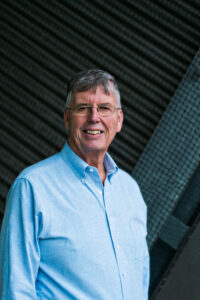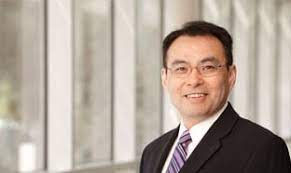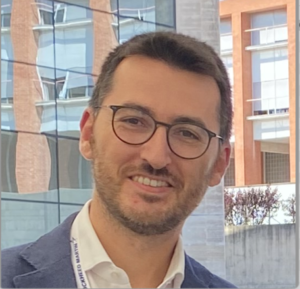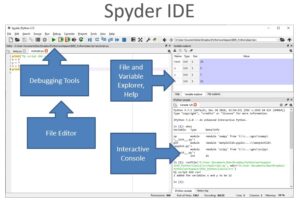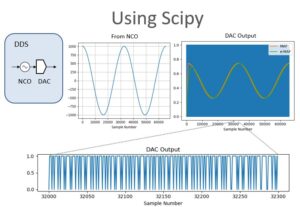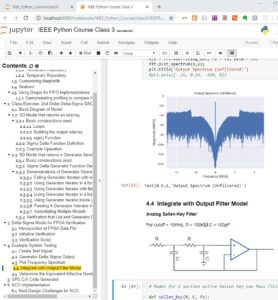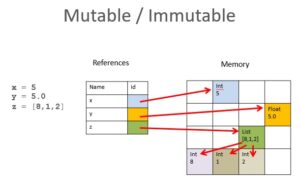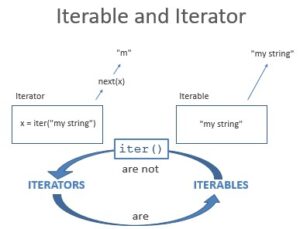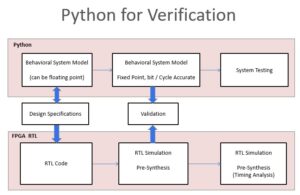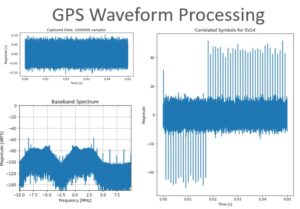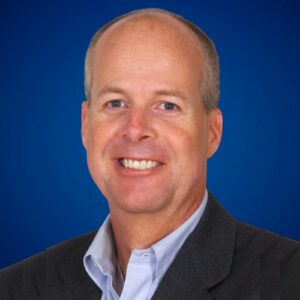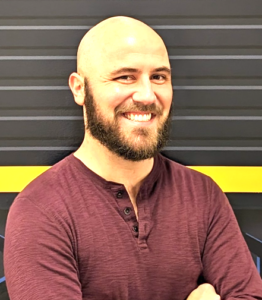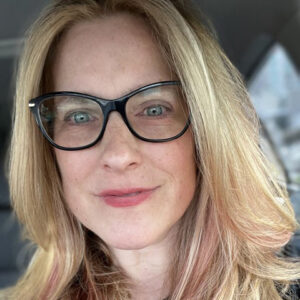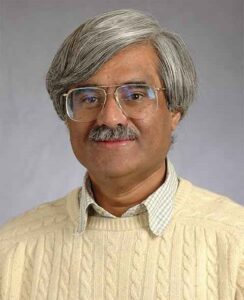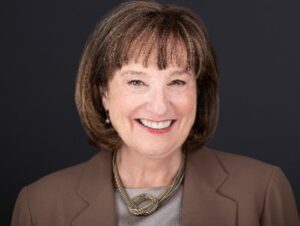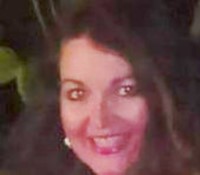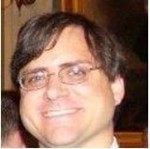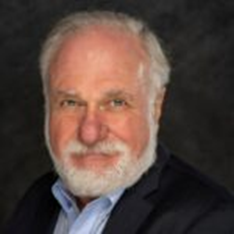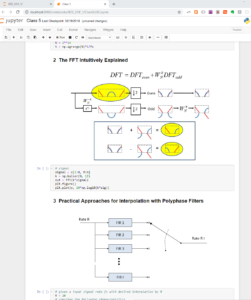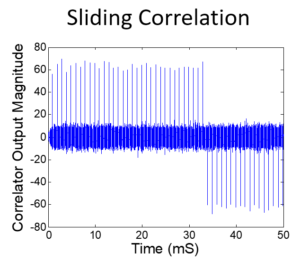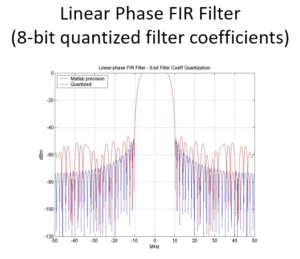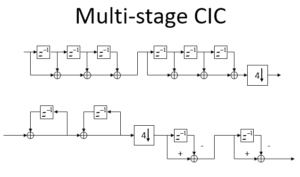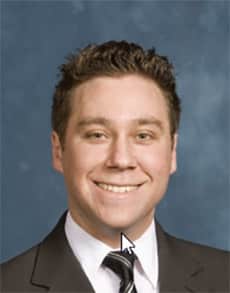Calendar
IEEE Power & Energy Chapter Course
The Boston Chapter of the IEEE Power and Energy Society is conducting an 8-hour course on Wind Energy. This course will be conducted virtually through Microsoft Teams. This course offers 0.8 CEUs or 8 PDH credits.
Session 1: Wed, Jan. 24, 2024, 6-8pm – Introduction to Onshore and Offshore Wind Energy – Scott Secrest, RES Georgia Beyersdorfer, Black & Veatch
Session 2: Wed, Jan. 31, 2024, 6-8pm – Wind Turbine Technology – Timothy Gaston, RES
Session 3: Wed, Feb. 7, 2024, 6-8pm – Transmission Considerations – Gaye Angela Ohanesian, gopower inc.
Session 4: Wed, Feb. 21, 2024, 6-8pm – Energy Policy and Regulatory Considerations for Developers – Danielle Jensen, Shell
Cost: For on-line registration please use the link below:
https://www.eventbrite.com/e/ieee-pes-boston-chapter-course-on-wind-energy-tickets-780890453367
PES Members: $160 + online registration fee
PES Members (requesting CEUs†): $165 + online registration fee
Non-PES Members: $190 + online registration fee
Non-PES Members (requesting CEUs†): $195 + online registration fee
Full-time college students*: $50 + online registration fee
Full-time college students (requesting CEUs†): $55 + online registration fee
* Students who have four tickets to redeem should not register using the link. They should contact Ami Vyas (details given below). Also, student registration is for full time students ONLY. Evidence of full time status must be sent to the below contact before attending course.
† Participants requesting CEUs for this course need to pay the additional $5 fee as IEEE will be charging PES Boston Chapter $5/certificate for certificates awarding CEUs or PDHs.
Participants can also register by mailing checks to IEEE PES Boston Chapter. For instructions on check registration, please contact Ami Vyas at ami.vyas@shell.com
IEEE Power & Energy Chapter Course
The Boston Chapter of the IEEE Power and Energy Society is conducting an 8-hour course on Wind Energy. This course will be conducted virtually through Microsoft Teams. This course offers 0.8 CEUs or 8 PDH credits.
Session 1: Wed, Jan. 24, 2024, 6-8pm – Introduction to Onshore and Offshore Wind Energy – Scott Secrest, RES Georgia Beyersdorfer, Black & Veatch
Session 2: Wed, Jan. 31, 2024, 6-8pm – Wind Turbine Technology – Timothy Gaston, RES
Session 3: Wed, Feb. 7, 2024, 6-8pm – Transmission Considerations – Gaye Angela Ohanesian, gopower inc.
Session 4: Wed, Feb. 21, 2024, 6-8pm – Energy Policy and Regulatory Considerations for Developers – Danielle Jensen, Shell
Cost: For on-line registration please use the link below:
https://www.eventbrite.com/e/ieee-pes-boston-chapter-course-on-wind-energy-tickets-780890453367
PES Members: $160 + online registration fee
PES Members (requesting CEUs†): $165 + online registration fee
Non-PES Members: $190 + online registration fee
Non-PES Members (requesting CEUs†): $195 + online registration fee
Full-time college students*: $50 + online registration fee
Full-time college students (requesting CEUs†): $55 + online registration fee
* Students who have four tickets to redeem should not register using the link. They should contact Ami Vyas (details given below). Also, student registration is for full time students ONLY. Evidence of full time status must be sent to the below contact before attending course.
† Participants requesting CEUs for this course need to pay the additional $5 fee as IEEE will be charging PES Boston Chapter $5/certificate for certificates awarding CEUs or PDHs.
Participants can also register by mailing checks to IEEE PES Boston Chapter. For instructions on check registration, please contact Ami Vyas at ami.vyas@shell.com
Photonics Society and co-sponsoring Life Members
Speaker: Dr. René-Jean Essiambre
This presentation will first provide a historical overview of the physical media used in wired communication, from electrical wires to waveguides. A special attention will be given to the hollow metallic waveguide, an area pioneered simultaneously by MIT and Bell Labs. It will be followed by a brief survey of innovative optical transmission lines that were proposed prior to the discovery of low-loss optical fibers.
The next portion of the talk will focus on the ultimate limits of optical fibers to carry information in optical networks due to nonlinear response of the optical fibers. The role and impact of different electronic and optical technologies to improve optical network capacity will be laid out. This includes digital coherent detection, digital signal processing and optical amplification. The role and potential of solid-core optical fibers allowing multiple spatial modes in each fiber strand as well as hollow-core fibers will be discussed.
Finally, the impact of quantum technologies on optical communication will be touched upon with an experimental demonstration of detection power efficiency above ten information bits per received photon.
Biography: René-Jean Essiambre joined Bell Labs in 1997 and is currently based at the Murray Hill laboratory in New Providence, New Jersey, USA. Dr. Essiambre worked on topics such as fiber lasers, nonlinear fiber optics, advanced modulation formats, space-division multiplexing, information theory, and high-photon-efficiency systems. He participated in the design of commercial fiber-optic communication systems where several of his inventions were implemented. He has given over 150 invited talks and helped prepare and delivered the 2018 Physics Nobel Prize Lecture on behalf of Arthur Ashkin. He served on or chaired many conference committees, including OFC, ECOC, CLEO, and IPC. He received the 2005 Engineering Excellence Award from OPTICA and is a fellow of the IEEE, OPTICA, IAS-TUM, and Bell Labs. He was President of the IEEE Photonics Society (2022-2023) and is currently the Past-President (2024-2025)
Computer Society and GBC/ACM
Speaker: Michael Stonebraker
Please register in advance for this seminar even if you plan to attend in person at
https://acm-org.zoom.us/webinar/register/1717017075074/WN_RKdRzZZdRPuT0LqrY14JLw
After registering, you will receive a confirmation email containing information about joining the webinar.
Indicate on the registration form if you plan to attend in person. This will help us determine whether the room is close to reaching capacity.
We may make some auxiliary material such as slides and access to the recording available after the seminar to people who have registered.
For the last three years, a team of us at MIT, Stanford, CMU, Google and VMware have built a new operating system stack, based on a high-performance distributed DBMS. In other words, all OS state (files, messages, scheduling information, etc.) is stored in the DBMS and all OS services are written in SQL plus stored procedures. At the present time, we have a secured venture capital funding and are about to release a commercial open source version. In this talk, I report on aspects of our system, including:
Performance: DBOS is competitive with the state of the art concerning file system performance, message performance and scheduling performance. All of these are implemented in SQL.
Provenance: Because all OS state is in DBMS tables, DBOS change capture moves all state to a warehouse DBMS (currently Vertica or Redshift) with a runtime overhead of about 5%. In this case, security queries (e.g. looking for outliers) supporting the “right to be forgotten” in GDPR-style systems and other provenance operations can be coded in SQL. Experiments with a current security product show that DBOS can both capture provenance data and query it with higher performance.
Serverless environment: We have written a Java serverless environment on top of DBOS. It is an order of magnitude faster than current systems (AWS Lambda, Open Whisk) because it co-locates computation and data whenever possible. Also, provenance facilitates a novel time-travel debugger.
Early enterprise usage: I will report on early DBOS usage in enterprise environments at three large enterprises.
Commercialization changes to DBOS: These include moving to TypeScript and open source DBMSs.
Bio: Dr. Stonebraker has been a pioneer of database research and technology for more than forty years. He was the main architect of the INGRES relational DBMS, and the object-relational DBMS, POSTGRES. These prototypes were developed at the University of California at Berkeley where Stonebraker was a Professor of Computer Science for twenty-five years. More recently at M.I.T. he was the co-architect of the C-Store column- oriented DBMS, the H-Store transaction processing engine, the Data Tamer data integration system, the SciDB array processing engine, the Kyrix visualization system and the operating system DBOS. He is the founder of ten venture-capital backed startups which have commercialized his prototypes.
Professor Stonebraker is the author of scores of research papers on database technology, operating systems and the architecture of system software services. He was awarded the ACM System Software Award in 1992, for his work on INGRES. Additionally, he was awarded the first annual Innovation award by the ACM SIGMOD special interest group in 1994 and was elected to the National Academy of Engineering in 1997. He was awarded the IEEE John Von Neumann award in 2005, and the ACM Turing Award in 2014. Presently he is an Adjunct Professor of Computer Science at M.I.T., where he is working on a variety of future-generation data-oriented projects.
This joint meeting of the Boston Chapter of the IEEE Computer Society and GBC/ACM will be hybrid (in person and online), part of getting back to normal after the COVID-19 lockdown.
Up-to-date information about this and other talks is available online at https://ewh.ieee.org/r1/boston/computer/. You can sign up to receive updated status information about this talk and informational emails about future talks at https://mailman.mit.edu/mailman/listinfo/ieee-cs, our self-administered mailing list.
IEEE Boston/Providence/New Hampshire Reliability Chapter
Please visit https://r1.ieee.org/boston-rl/
Chapter Reliability analysis and survival analysis both deal with the time-to-event data, which is often censored and highly skewed. Medical researchers try to predict the survival probabilities, survival times and other important characteristics. Therefore, it is not surprising to see many of the reliability analysis tools being used in clinical trials and epidemic research. After all, survival is the complementary event to failure.
In this talk I will focus on the parallels and distinctions between the two statistical methods through some real-life examples. I will also demonstrate modern predictive modeling tools that are useful to reliability engineers.
Location: This Webinar is to be delivered virtually.
At registration, you must provide a valid e-mail address to receive the Webinar Session link approximately 15 hours before the event. The link will only be sent to the e-mail address entered with your registration. Please double-check for spelling errors. If you haven’t received the e-mail as scheduled, please check your spam folder and alternate e-mail accounts before contacting the host.
Registration Starts 21 January 2024 12:00 AM Ends 06 February 2024 05:30 PM
All times are (UTC-05:00) Eastern Time (US & Canada)
No Admission Charge
Speaker: Jian Cao of JMP
Topic: Analyzing Time-to-Event Data: A Comparison Between Reliability and Survival Methods
Agenda
11:00 AM: Technical Presentation
11:45 AM: Questions and Answers
12:00 PM: Adjournment
The meeting is open to all. You do not need to belong to the IEEE to attend this event; however, we welcome your consideration of IEEE membership as a career enhancing technical affiliation. There is no cost to register or attend, but registration is required.
IEEE Power & Energy Chapter Course
The Boston Chapter of the IEEE Power and Energy Society is conducting an 8-hour course on Wind Energy. This course will be conducted virtually through Microsoft Teams. This course offers 0.8 CEUs or 8 PDH credits.
Session 1: Wed, Jan. 24, 2024, 6-8pm – Introduction to Onshore and Offshore Wind Energy – Scott Secrest, RES Georgia Beyersdorfer, Black & Veatch
Session 2: Wed, Jan. 31, 2024, 6-8pm – Wind Turbine Technology – Timothy Gaston, RES
Session 3: Wed, Feb. 7, 2024, 6-8pm – Transmission Considerations – Gaye Angela Ohanesian, gopower inc.
Session 4: Wed, Feb. 21, 2024, 6-8pm – Energy Policy and Regulatory Considerations for Developers – Danielle Jensen, Shell
Cost: For on-line registration please use the link below:
https://www.eventbrite.com/e/ieee-pes-boston-chapter-course-on-wind-energy-tickets-780890453367
PES Members: $160 + online registration fee
PES Members (requesting CEUs†): $165 + online registration fee
Non-PES Members: $190 + online registration fee
Non-PES Members (requesting CEUs†): $195 + online registration fee
Full-time college students*: $50 + online registration fee
Full-time college students (requesting CEUs†): $55 + online registration fee
* Students who have four tickets to redeem should not register using the link. They should contact Ami Vyas (details given below). Also, student registration is for full time students ONLY. Evidence of full time status must be sent to the below contact before attending course.
† Participants requesting CEUs for this course need to pay the additional $5 fee as IEEE will be charging PES Boston Chapter $5/certificate for certificates awarding CEUs or PDHs.
Participants can also register by mailing checks to IEEE PES Boston Chapter. For instructions on check registration, please contact Ami Vyas at ami.vyas@shell.com
Aerospace and Electronic Systems Society (AESS) and IEEE Robotics and Automation Society (RAS)
Speaker: Giancarmine Fasano
Bio: Giancarmine Fasano is Associate Professor at the University of Naples “Federico II”, where he teaches courses in “Unmanned Aircraft Systems”, “Space Flight Dynamics”, and “Design of Autonomous Aircraft”, as part of the M.S. Programs in Aerospace Engineering and Autonomous Vehicles Engineering. He also holds courses (UAS and Mini/micro-UAS Lab) at the Italian Air Force Academy. His research activities in the field of aeronautics are focused on UAS, and in particular on sense and avoid, cooperative multi-drone systems, path planning and navigation with recent emphasis on Advanced Air Mobility scenarios. In the space field he is mainly interested in distributed space systems and proximity operations, with emphasis on relative motion design/control and relative navigation, and in space domain awareness.
He is Vice-Chair of the Avionics Systems Panel (ASP) of the IEEE Aerospace and Electronic Systems Society, Senior Editor of the IEEE Transactions on Aerospace and Electronic Systems for the Avionics area, Associate Editor of the IEEE AESS Magazine for the UAS area of specialty, and IEEE Senior Member. Since 2019, he has been Member of the Organizing Committee and Tutorial Instructor at the IEEE/AIAA Digital Avionics Systems Conference. He is Member of the AIAA Sensor Systems and Information Fusion Technical Committee and AIAA Senior Member, and he has also been Member of the IAA (International Academy of Astronautics) Committee on Small Satellites. He has co-authored about 200 publications and five book chapters.
In the recent past, important efforts have been devoted to the safe integration of Unmanned Aircraft Systems (UAS) in all classes of airspace, a key-prerequisite to unleash their full potential for civilian operations. Closely linked with these developments, advanced air mobility (AAM) has appeared as a new and disruptive dimension for aviation, potentially enabling mobility of goods and people at a different scale compared with current operations. This exciting evolution is reshaping the future of aviation, but it also challenges traditional paradigms in the field of avionics, and requires advances both from a technological and a regulatory perspective.
This lecture addresses gaps and recent research advances in this framework, focusing within a unified perspective on detect and avoid (DAA) and path planning / airspace management. DAA has represented one of the main roadblocks to the integration of UAS operations. The lecture will first outline architectures, technologies, and algorithms for DAA. Then, it will discuss recent trends and progress in DAA and more in general in low altitude airspace surveillance. Concerning path planning, the focus will be set on highly autonomous low-altitude flight operations in dense urban environments, which emphasize the links between airspace structure and management, and the requirements on communications navigation and surveillance (CNS) technologies. The lecture will address recent multi-objective navigation-aware strategic and tactical planning approaches which can be used as workhorses for traffic deconfliction at infrastructure and vehicle level.
Education Society, Signal Processing Society and Women in Engineering are co-sponsoring:
Graduate Lab Reports–How to Leverage Your Career and Influence, by Professor Ron Lasser, PhD
All Tufts graduate students and postdocs are welcome to attend this Tufts Engineering Professional Development Workshop taught by Professor of the Practice Ron Lasser. Writing lab reports is a straightforward and structured procedure. Simple, right? Not exactly. Academic and industrial lab reports are written from different perspectives and targeted to very different audiences. While each part of a lab report is important — title, abstract, introduction, methods and materials, results, discussion, conclusion, and references — what professors want differs greatly from a manager or an executive in industry. Learn to write for success and career growth after graduation.
IEEE Power & Energy Chapter Course
The Boston Chapter of the IEEE Power and Energy Society is conducting an 8-hour course on Wind Energy. This course will be conducted virtually through Microsoft Teams. This course offers 0.8 CEUs or 8 PDH credits.
Session 1: Wed, Jan. 24, 2024, 6-8pm – Introduction to Onshore and Offshore Wind Energy – Scott Secrest, RES Georgia Beyersdorfer, Black & Veatch
Session 2: Wed, Jan. 31, 2024, 6-8pm – Wind Turbine Technology – Timothy Gaston, RES
Session 3: Wed, Feb. 7, 2024, 6-8pm – Transmission Considerations – Gaye Angela Ohanesian, gopower inc.
Session 4: Wed, Feb. 21, 2024, 6-8pm – Energy Policy and Regulatory Considerations for Developers – Danielle Jensen, Shell
Cost: For on-line registration please use the link below:
https://www.eventbrite.com/e/ieee-pes-boston-chapter-course-on-wind-energy-tickets-780890453367
PES Members: $160 + online registration fee
PES Members (requesting CEUs†): $165 + online registration fee
Non-PES Members: $190 + online registration fee
Non-PES Members (requesting CEUs†): $195 + online registration fee
Full-time college students*: $50 + online registration fee
Full-time college students (requesting CEUs†): $55 + online registration fee
* Students who have four tickets to redeem should not register using the link. They should contact Ami Vyas (details given below). Also, student registration is for full time students ONLY. Evidence of full time status must be sent to the below contact before attending course.
† Participants requesting CEUs for this course need to pay the additional $5 fee as IEEE will be charging PES Boston Chapter $5/certificate for certificates awarding CEUs or PDHs.
Participants can also register by mailing checks to IEEE PES Boston Chapter. For instructions on check registration, please contact Ami Vyas at ami.vyas@shell.com
COURSE DESCRIPTION
Course Kick-off / Orientation 6:00PM – 6:30PM EDT; Thursday, February 29, 2024
First Video Release, Thursday, February 29, 2024. Additional videos released weekly in advance of that week’s live session!
Live Workshops: 6:00PM – 7:30PM EDT; Thursdays, March 7, 14, 21, 28
Registration is open through the last live workshop date. Live workshops are recorded for later use.
Course Information will be distributed on Thursday, February 29, 2024 in advance of and in preparation for the first live workshop session. A live orientation session will be held on February 29, 2024.
Attendees will have access to the recorded session and exercises for two months (until May 28, 2024) after the last live session ends!
IEEE Member Early Rate (by February 15): $190.00
IEEE Member Rate (after February 15th): $285.00
IEEE Non-Member Early Rate (by February 15): $210.00
IEEE Non-Member Rate (after February 15): $315.00
Decision to run/cancel course: Thursday, February 22, 2024
Speaker: Dan Boschen
This is a hands-on course combining pre-recorded lectures with live Q&A and workshop sessions in the popular and powerful open-source Python programming language.
Pre-Recorded Videos: The course format includes pre-recorded video lectures that students can watch on their own schedule, and an unlimited number of times, prior to live Q&A workshop sessions on Zoom with the instructor. The videos will also be available to the students for viewing for up to two months after the conclusion of the course.
Overview: Dan provides simple, straight-forward navigation through the multiple configurations and options, providing a best-practices approach for quickly getting up to speed using Python for modelling and analysis for applications in signal processing and digital design verification. Students will be using the Anaconda distribution, which combines Python with the most popular data science applications, and Jupyter Notebooks for a rich, interactive experience.
The course begins with basic Python data structures and constructs, including key “Pythonic” concepts, followed by an overview and use of popular packages for scientific computing enabling rapid prototyping for system design.
During the course students will create example designs including a sigma delta converter and direct digital synthesizer both in floating point and fixed point. This will include considerations for cycle and bit accurate models useful for digital design verification (FPGA/ASIC), while bringing forward the signal processing tools for frequency and time domain analysis.
Jupyter Notebooks: This course makes extensive use of Jupyter Notebooks which combines running Python code with interactive plots and graphics for a rich user experience. Jupyter Notebooks is an open-source web-based application (that can be run locally) that allows users to create and share visually appealing documents containing code, graphics, visualizations and interactive plots. Students will be able to interact with the notebook contents and use “take-it-with-you” results for future applications in signal processing.
Target Audience: This course is targeted toward users with little to no prior experience in Python, however familiarity with other modern programming languages and an exposure to object-oriented constructs is very helpful. Students should be comfortable with basic signal processing concepts in the frequency and time domain. Familiarity with Matlab or Octave is not required, but the equivalent operations in Python using the NumPy package will be provided for those students that do currently use Matlab and/or Octave for signal processing applications.
Benefits of Attending / Goals of Course: Attendees will gain an overall appreciation of using Python and quickly get up to speed in best practice use of Python.
All set-up information for the installation of all tools will be provided before the start of class.
Topics / Schedule:
Pre-recorded lectures (3 hours each) will be distributed Friday prior to all Workshop dates. Workshop/ Q&A Sessions are 6pm-7:30pm on the dates listed below:
Kick-off / Orientation: February 29, 2024
Thursday, March 7, 2024
Topic 1: Intro to Jupyter Notebooks, the Spyder IDE and the course design examples. Core Python constructs.
Thursday, March 14, 2024
Topic 2: Core Python constructs; iterators, functions, reading writing data files.
Thursday, March, 21, 2024
Topic 3: Signal processing simulation with popular packages including NumPy, SciPy, and Matplotlib.
Thursday, March 28, 2024
Topic 4: Bit/cycle accurate modelling and analysis using the design examples and simulation packages
Speaker’s Bio:
Dan Boschen has a MS in Communications and Signal Processing from Northeastern University, with over 25 years of experience in system and hardware design for radio transceivers and modems. He has held various positions at Signal Technologies, MITRE, Airvana and Hittite Microwave designing and developing transceiver hardware from baseband to antenna for wireless communications systems and has taught courses on DSP to international audiences for over 15 years. Dan is a contributor to Signal Processing Stack Exchange https://dsp.stackexchange.com/, and is currently at Microchip (formerly Microsemi and Symmetricom) leading design efforts for advanced frequency and time solutions.
For more background information, please view Dan’s Linked-In page.
Registration is open through the last live workshop date. Live workshops are recorded for later use.
Entrepreneurs’ Network
Cost: Free to ENET members; $15. Non-members
Artificial intelligence presents the greatest opportunity ever for entrepreneurs to level the playing field against your oversized competitors. It can also provide better access to information with natural language search and summarization. But what exactly is AI and how can you use it effectively?
There are several flavors of AI such as machine learning, neural networks, and natural language processing. Applications can be specific to industries, systems, and processes. There are practical and ethical considerations, too. Lasell University Assistant Professor Kurt Wirth, who’s a faculty fellow for AI, will give you an overview of AI technologies, considerations, and issues.
Jeff Ernst, CEO and founder of two companies focused on customer and buyer research and a SaaS customer marketing and advocacy platform, will explain how to make yourself relevant in this new world of AI-empowered buyers by giving entrepreneurs an advantage over larger competitors. Those pros raced to use ChatGPT and its brethren to generate marketing messages, website content, sales letters, you name it. Alas, nothing makes you sound more generic and just like your competitors than content generated by AI bots.
The real opportunity is an area where no one is focused yet. Your buyers would rather have conversations with AI bots like ChatGPT than your sales reps to learn about potential solutions to their problems or ask AI bots questions for insightful answers than do Google searches and get a list of links.
In the legal world, AI has the potential to narrow the justice gap, but it also has the potential to cause serious ethical issues for lawyers. Kara Peterson, co-founder of descrybe.ai, will explain how the legal tech market is adapting to the arrival of AI. She will provide examples of good and bad uses of AI in the legal sphere, and how her company is using AI to increase access to the law, and ultimately, access to justice.
During this program, you will learn:
o The various flavors of AI
o Custom AI applications for industries
o AI’s massive system processing demands
o A race to find AI talent
o Research on how AI affects buyer behavior
o When, how, and why tech buyers use AI and how start-ups must be part of buyers research
o How to build a business with AI
o A legal application to democratize the law
Panel Speakers:
Bio: Jeff Ernst is the Founder and CEO of Voice Advice, a Voice of the Customer (VOC) and Buyer (VOB) research company, and Founder and CEO of SlapFive, a SaaS Customer Marketing & Advocacy platform. As the creator of the Customer-Led Growth movement, Ernst guides senior executives on how to mobilize customers to drive profitable revenue growth. He developed this approach as a Principal Analyst at Forrester, where he conducted extensive research into how prospects buy and how customers want to be engaged. Ernst used those insights to help executives devise customer engagement strategies that drive new customer acquisition, onboarding and adoption, expansion, and renewal.
linkedin.com/in/jeffernst/
Bio: Kurt Wirth is an Assistant Professor of Communication at Lasell University as well as the school's Faculty Fellow for AI and Pedagogical Innovation. With a Ph.D. in Communication, Wirth built a successful career in marketing digital presences for brands like GEICO and Hilton Hotels and Resorts before turning to a life in education. His background has leaned heavily on digital communication and modern tech, as his passion for data, emerging technologies, and empowering students has overlapped in his role at Lasell University. Known for leaping first and generally landing on his feet, Wirth is a bold, action-oriented risk-taker who has put innovation first at every stop of his journey.
Bio: Kara Peterson is cofounder of descrybe.ai, a legal tech startup founded in June 2024. She is also a marketing communications leader who focuses on organizations with a social justice focus. She currently is the Senior Director of Integrated Marketing Communications at the Museum of Science and previously worked at Harvard University and Boston University. Peterson is also involved in local activism and is a founding member of Newton Upstanders, which is focused on making Newton an inclusive and welcoming community for all. She earned her MBA at Boston University and her undergraduate degree at the University of Wisconsin.
Moderator and Organizer
Howard Sholkin has several decades of marketing communication experience across industry sectors. Since 2018, he has served as President of Newton Community Pride, a non-profit supporting a few dozen events in the city where he is a lifelong resident. In 2014, he formed Sholkin Consulting to deliver digital marketing services to technology and financial services companies. He also served on the adjunct faculty of Boston University and Lasell College for five years.
In 2003, he was hired as director of corporate communications at International Data Group (IDG) where he served Founder Pat McGovern. Sholkin later became director of communication and marketing programs for the CEO of IDG Communications, a global technology media and events subsidiary. IDG brands include Computerworld, PCWorld, Macworld, and CIO. Sholkin has held senior marketing and communication positions at technology product and services companies such as Computervision; Technology Concepts, a subsidiary of Bell Atlantic; Corporate Software; and, Digital Equipment Corp./Compaq. He was a columnist for PR News and for Personal Branding magazine, one of the first publications on social media.
Since 1990, Sholkin has been active in the Public Relations Society of America (PRSA) where he once served as president of the Boston chapter. Currently, he is co-chair of the national PRSA Investment Committee. He serves on the boards of three non-profits: Newton Community Pride, Boston Entrepreneurs Network (ENET) and Temple Shalom of Newton.
IEEE Boston/Providence/New Hampshire Reliability Chapter and co-sponsoring Life Members
Speaker: Priscila Silva of University of Massachusetts – Dartmouth
Resilience engineering is the ability to build and sustain a system that can deal effectively with disruptive events. Previous resilience engineering research focuses on metrics to quantify resilience and models to characterize system performance. However, resilience metrics are normally computed after disruptions have occurred and existing models lack the ability to predict one or more shocks and subsequent recoveries.
To address these limitations, this talk presents three alternative approaches to model system resilience with statistical techniques based on (i) regression, (ii) time series, and (iii) a combination of regression and time series to track and predict how system performance will change when exposed to multiple shocks and stresses of different intensity and duration, provide structure for planning tests to assess system resilience against particular shocks and stresses and guide data collection necessary to conduct tests effectively.
These modeling approaches are general and can be applied to systems and processes in multiple domains. A historical data set on job losses during the 1980 recessions in the United States is used to assess the predictive accuracy of these approaches. Goodness-of-fit measures and confidence intervals are computed and interval-based and point-based resilience metrics are predicted to assess how well the models perform on the data set considered. The results suggest that resilience models based on statistical methods such as multiple linear regression and multivariate time series models are capable of modeling and predicting resilience curves exhibiting multiple shocks and subsequent recoveries. However, models that combine regression and time series account for changes in performance due to current and time-delayed effects from disruptions most effectively, demonstrating superior performance in long-term predictions and higher goodness-of-fit despite increased parametric complexity.
Location: This Meeting is to be delivered in-person at MIT Lincoln Lab Main Cafeteria, 244 Wood St, Lexington, MA 02421, and virtually.
At registration, you must provide a valid e-mail address to receive the Webinar Session link approximately 15 hours before the event. The link will only be sent to the e-mail address entered with your registration. Please double-check for spelling errors. If you haven’t received the e-mail as scheduled, please check your spam folder and alternate e-mail accounts before contacting the host.
Agenda:
5:30 PM – Light repast and Networking
6:00 PM – Technical Presentation
6:45 PM – Questions and Answers
7:00 PM – Adjournment
The meeting is open to all. You do not need to belong to the IEEE to attend this event; however, we welcome your consideration of IEEE membership as a career enhancing technical affiliation.
There is no cost to register or attend, but registration is required.
Power Electronics Society and Women in Engineering
Greetings from IEEE PELS Boston Chapter!
Come celebrate this women’s day with us and ‘Inspire Inclusion’.
Join us for a panel discussion on ‘Empowering WomXn in Power Electronics’. Listen to amazing panelists from academia and industry from different career-levels working in power electronics –
Prof. Samantha Coday, Assistant Professor, MIT
Dr. Rosa Ciprian PhD, EE Director, Robot team at Alert Innovation
Ms. Aparna Ajith, PMIC design engineer, Eta Wireless, a Murata Company
Dr. Arshiah Mirza, Senior Electrical Engineer, Shell Techworks
Please RSVP here to reserve your seat: https://shorturl.at/zIKZ1
This event hosted by IEEE PELS Boston chapter and sponsored by IEEE PELS Women in Engineering.
Where: Allen Room (36-462), MIT Building 36, 50 Vassar St, Cambridge, MA 02139
Follow us on LinkedIn here: https://www.linkedin.com/company/100777567
Become a member/volunteer signup here: http://tinyurl.com/532hjpa2
Agenda:
Online & in-person: Panel discussion
In-person only: Food available
IEEE Power Electronics Society (PELS) Boston Chapter team: Brad Lehman | Cory Voisine | Yeonho Jeong | Arshiah Mirza
Special thanks to our Women’s day event sponsors: IEEE Power Electronics Society IEEE Women in Engineering team:
Becky Boresen | Stephanie Butler | Lauren Kegley | Lakshmi Ravi | Sneha Narasimhan | Satarupa Bal | Yunting Liu | Christina DiMarino | Katherine Kim and others
Please reach out to arshiah.mirza@ieee.org if you have any questions.
COURSE DESCRIPTION
Course Kick-off / Orientation 6:00PM – 6:30PM EDT; Thursday, February 29, 2024
First Video Release, Thursday, February 29, 2024. Additional videos released weekly in advance of that week’s live session!
Live Workshops: 6:00PM – 7:30PM EDT; Thursdays, March 7, 14, 21, 28
Registration is open through the last live workshop date. Live workshops are recorded for later use.
Course Information will be distributed on Thursday, February 29, 2024 in advance of and in preparation for the first live workshop session. A live orientation session will be held on February 29, 2024.
Attendees will have access to the recorded session and exercises for two months (until May 28, 2024) after the last live session ends!
IEEE Member Early Rate (by February 15): $190.00
IEEE Member Rate (after February 15th): $285.00
IEEE Non-Member Early Rate (by February 15): $210.00
IEEE Non-Member Rate (after February 15): $315.00
Decision to run/cancel course: Thursday, February 22, 2024
Speaker: Dan Boschen
This is a hands-on course combining pre-recorded lectures with live Q&A and workshop sessions in the popular and powerful open-source Python programming language.
Pre-Recorded Videos: The course format includes pre-recorded video lectures that students can watch on their own schedule, and an unlimited number of times, prior to live Q&A workshop sessions on Zoom with the instructor. The videos will also be available to the students for viewing for up to two months after the conclusion of the course.
Overview: Dan provides simple, straight-forward navigation through the multiple configurations and options, providing a best-practices approach for quickly getting up to speed using Python for modelling and analysis for applications in signal processing and digital design verification. Students will be using the Anaconda distribution, which combines Python with the most popular data science applications, and Jupyter Notebooks for a rich, interactive experience.
The course begins with basic Python data structures and constructs, including key “Pythonic” concepts, followed by an overview and use of popular packages for scientific computing enabling rapid prototyping for system design.
During the course students will create example designs including a sigma delta converter and direct digital synthesizer both in floating point and fixed point. This will include considerations for cycle and bit accurate models useful for digital design verification (FPGA/ASIC), while bringing forward the signal processing tools for frequency and time domain analysis.
Jupyter Notebooks: This course makes extensive use of Jupyter Notebooks which combines running Python code with interactive plots and graphics for a rich user experience. Jupyter Notebooks is an open-source web-based application (that can be run locally) that allows users to create and share visually appealing documents containing code, graphics, visualizations and interactive plots. Students will be able to interact with the notebook contents and use “take-it-with-you” results for future applications in signal processing.
Target Audience: This course is targeted toward users with little to no prior experience in Python, however familiarity with other modern programming languages and an exposure to object-oriented constructs is very helpful. Students should be comfortable with basic signal processing concepts in the frequency and time domain. Familiarity with Matlab or Octave is not required, but the equivalent operations in Python using the NumPy package will be provided for those students that do currently use Matlab and/or Octave for signal processing applications.
Benefits of Attending / Goals of Course: Attendees will gain an overall appreciation of using Python and quickly get up to speed in best practice use of Python.
All set-up information for the installation of all tools will be provided before the start of class.
Topics / Schedule:
Pre-recorded lectures (3 hours each) will be distributed Friday prior to all Workshop dates. Workshop/ Q&A Sessions are 6pm-7:30pm on the dates listed below:
Kick-off / Orientation: February 29, 2024
Thursday, March 7, 2024
Topic 1: Intro to Jupyter Notebooks, the Spyder IDE and the course design examples. Core Python constructs.
Thursday, March 14, 2024
Topic 2: Core Python constructs; iterators, functions, reading writing data files.
Thursday, March, 21, 2024
Topic 3: Signal processing simulation with popular packages including NumPy, SciPy, and Matplotlib.
Thursday, March 28, 2024
Topic 4: Bit/cycle accurate modelling and analysis using the design examples and simulation packages
Speaker’s Bio:
Dan Boschen has a MS in Communications and Signal Processing from Northeastern University, with over 25 years of experience in system and hardware design for radio transceivers and modems. He has held various positions at Signal Technologies, MITRE, Airvana and Hittite Microwave designing and developing transceiver hardware from baseband to antenna for wireless communications systems and has taught courses on DSP to international audiences for over 15 years. Dan is a contributor to Signal Processing Stack Exchange https://dsp.stackexchange.com/, and is currently at Microchip (formerly Microsemi and Symmetricom) leading design efforts for advanced frequency and time solutions.
For more background information, please view Dan’s Linked-In page.
Registration is open through the last live workshop date. Live workshops are recorded for later use.
Consultants’ Network (CNET)
Free Dinner starts at 6:00 PM
Meeting starts at 7:00 PM – On-site and Zoom
Members in good standing are encouraged to attend. If you are unable to attend, then we will also be on Zoom.
Registration: https://www.boston-consult.org/event-5614112/Registration
COURSE DESCRIPTION
Course Kick-off / Orientation 6:00PM – 6:30PM EDT; Thursday, February 29, 2024
First Video Release, Thursday, February 29, 2024. Additional videos released weekly in advance of that week’s live session!
Live Workshops: 6:00PM – 7:30PM EDT; Thursdays, March 7, 14, 21, 28
Registration is open through the last live workshop date. Live workshops are recorded for later use.
Course Information will be distributed on Thursday, February 29, 2024 in advance of and in preparation for the first live workshop session. A live orientation session will be held on February 29, 2024.
Attendees will have access to the recorded session and exercises for two months (until May 28, 2024) after the last live session ends!
IEEE Member Early Rate (by February 15): $190.00
IEEE Member Rate (after February 15th): $285.00
IEEE Non-Member Early Rate (by February 15): $210.00
IEEE Non-Member Rate (after February 15): $315.00
Decision to run/cancel course: Thursday, February 22, 2024
Speaker: Dan Boschen
This is a hands-on course combining pre-recorded lectures with live Q&A and workshop sessions in the popular and powerful open-source Python programming language.
Pre-Recorded Videos: The course format includes pre-recorded video lectures that students can watch on their own schedule, and an unlimited number of times, prior to live Q&A workshop sessions on Zoom with the instructor. The videos will also be available to the students for viewing for up to two months after the conclusion of the course.
Overview: Dan provides simple, straight-forward navigation through the multiple configurations and options, providing a best-practices approach for quickly getting up to speed using Python for modelling and analysis for applications in signal processing and digital design verification. Students will be using the Anaconda distribution, which combines Python with the most popular data science applications, and Jupyter Notebooks for a rich, interactive experience.
The course begins with basic Python data structures and constructs, including key “Pythonic” concepts, followed by an overview and use of popular packages for scientific computing enabling rapid prototyping for system design.
During the course students will create example designs including a sigma delta converter and direct digital synthesizer both in floating point and fixed point. This will include considerations for cycle and bit accurate models useful for digital design verification (FPGA/ASIC), while bringing forward the signal processing tools for frequency and time domain analysis.
Jupyter Notebooks: This course makes extensive use of Jupyter Notebooks which combines running Python code with interactive plots and graphics for a rich user experience. Jupyter Notebooks is an open-source web-based application (that can be run locally) that allows users to create and share visually appealing documents containing code, graphics, visualizations and interactive plots. Students will be able to interact with the notebook contents and use “take-it-with-you” results for future applications in signal processing.
Target Audience: This course is targeted toward users with little to no prior experience in Python, however familiarity with other modern programming languages and an exposure to object-oriented constructs is very helpful. Students should be comfortable with basic signal processing concepts in the frequency and time domain. Familiarity with Matlab or Octave is not required, but the equivalent operations in Python using the NumPy package will be provided for those students that do currently use Matlab and/or Octave for signal processing applications.
Benefits of Attending / Goals of Course: Attendees will gain an overall appreciation of using Python and quickly get up to speed in best practice use of Python.
All set-up information for the installation of all tools will be provided before the start of class.
Topics / Schedule:
Pre-recorded lectures (3 hours each) will be distributed Friday prior to all Workshop dates. Workshop/ Q&A Sessions are 6pm-7:30pm on the dates listed below:
Kick-off / Orientation: February 29, 2024
Thursday, March 7, 2024
Topic 1: Intro to Jupyter Notebooks, the Spyder IDE and the course design examples. Core Python constructs.
Thursday, March 14, 2024
Topic 2: Core Python constructs; iterators, functions, reading writing data files.
Thursday, March, 21, 2024
Topic 3: Signal processing simulation with popular packages including NumPy, SciPy, and Matplotlib.
Thursday, March 28, 2024
Topic 4: Bit/cycle accurate modelling and analysis using the design examples and simulation packages
Speaker’s Bio:
Dan Boschen has a MS in Communications and Signal Processing from Northeastern University, with over 25 years of experience in system and hardware design for radio transceivers and modems. He has held various positions at Signal Technologies, MITRE, Airvana and Hittite Microwave designing and developing transceiver hardware from baseband to antenna for wireless communications systems and has taught courses on DSP to international audiences for over 15 years. Dan is a contributor to Signal Processing Stack Exchange https://dsp.stackexchange.com/, and is currently at Microchip (formerly Microsemi and Symmetricom) leading design efforts for advanced frequency and time solutions.
For more background information, please view Dan’s Linked-In page.
Registration is open through the last live workshop date. Live workshops are recorded for later use.
Photonics Society
Speaker: Dr. Diedrik Vermeulen
Silicon photonics harnesses the power of light to enable high-speed, high-capacity data communication and processing on the silicon platform. When applied to coherent biosensing, this technology facilitates ultra-sensitive and real-time detection of biological molecules. By integrating photonic circuits with biosensing elements, unprecedented resolution and specificity in molecular detection can be achieved. This convergence promises transformative advances in diagnostics, therapeutics, and personalized medicine.
Bio: Diedrik is one of the founders of SiPhox Health and serves as its Chief Executive Officer. Prior to joining SiPhox, Diedrik was the Director of Engineering at Analog Photonics commercializing chip-scale LiDAR and tunable lasers. He was also a research scientist at Massachusetts Institute of Technology and was a principal design engineer at Acacia Communications (IPO, acquired by Cisco) commercializing the first silicon photonics based coherent transceiver for long-haul and metro optical fiber communication. Diedrik’s inventions on Fiber-To-The-Home optical transceivers were commercialized in a company Caliopa (acquired by Huawei). Diedrik holds a M.S. in Theoretical Physics, a M.S. in Applied Physics and a PhD in Photonics from Ghent University.
Entrepreneurs’ Network
In-person location forth-coming
Virtual via Zoom
Cost: Free to ENET members; $15. Non-members
Academic research is a critical source of new knowledge, a basic research engine that translates investigator curiosity, energy and resourcefulness into tools, insights and inventions that have the potential to change the world. Sadly, only 5-10 percent of patented academic inventions go on to become commercial products, and only a very small percentage of academic research even gets to the stage of filing a patent. What does it take to effectively translate academic research to commercial success?
Often, the path to commercialization begins with a start-up. The challenges in launching a start- up based on research emerging from academia are manifold. To say “it takes a village” would be a gross understatement. Tonight’s panelists, each having a key role in the academic research to commercialization continuum, will enlighten us with their experienced insights.
COURSE DESCRIPTION
Course Kick-off / Orientation 6:00PM – 6:30PM EDT; Thursday, February 29, 2024
First Video Release, Thursday, February 29, 2024. Additional videos released weekly in advance of that week’s live session!
Live Workshops: 6:00PM – 7:30PM EDT; Thursdays, March 7, 14, 21, 28
Registration is open through the last live workshop date. Live workshops are recorded for later use.
Course Information will be distributed on Thursday, February 29, 2024 in advance of and in preparation for the first live workshop session. A live orientation session will be held on February 29, 2024.
Attendees will have access to the recorded session and exercises for two months (until May 28, 2024) after the last live session ends!
IEEE Member Early Rate (by February 15): $190.00
IEEE Member Rate (after February 15th): $285.00
IEEE Non-Member Early Rate (by February 15): $210.00
IEEE Non-Member Rate (after February 15): $315.00
Decision to run/cancel course: Thursday, February 22, 2024
Speaker: Dan Boschen
This is a hands-on course combining pre-recorded lectures with live Q&A and workshop sessions in the popular and powerful open-source Python programming language.
Pre-Recorded Videos: The course format includes pre-recorded video lectures that students can watch on their own schedule, and an unlimited number of times, prior to live Q&A workshop sessions on Zoom with the instructor. The videos will also be available to the students for viewing for up to two months after the conclusion of the course.
Overview: Dan provides simple, straight-forward navigation through the multiple configurations and options, providing a best-practices approach for quickly getting up to speed using Python for modelling and analysis for applications in signal processing and digital design verification. Students will be using the Anaconda distribution, which combines Python with the most popular data science applications, and Jupyter Notebooks for a rich, interactive experience.
The course begins with basic Python data structures and constructs, including key “Pythonic” concepts, followed by an overview and use of popular packages for scientific computing enabling rapid prototyping for system design.
During the course students will create example designs including a sigma delta converter and direct digital synthesizer both in floating point and fixed point. This will include considerations for cycle and bit accurate models useful for digital design verification (FPGA/ASIC), while bringing forward the signal processing tools for frequency and time domain analysis.
Jupyter Notebooks: This course makes extensive use of Jupyter Notebooks which combines running Python code with interactive plots and graphics for a rich user experience. Jupyter Notebooks is an open-source web-based application (that can be run locally) that allows users to create and share visually appealing documents containing code, graphics, visualizations and interactive plots. Students will be able to interact with the notebook contents and use “take-it-with-you” results for future applications in signal processing.
Target Audience: This course is targeted toward users with little to no prior experience in Python, however familiarity with other modern programming languages and an exposure to object-oriented constructs is very helpful. Students should be comfortable with basic signal processing concepts in the frequency and time domain. Familiarity with Matlab or Octave is not required, but the equivalent operations in Python using the NumPy package will be provided for those students that do currently use Matlab and/or Octave for signal processing applications.
Benefits of Attending / Goals of Course: Attendees will gain an overall appreciation of using Python and quickly get up to speed in best practice use of Python.
All set-up information for the installation of all tools will be provided before the start of class.
Topics / Schedule:
Pre-recorded lectures (3 hours each) will be distributed Friday prior to all Workshop dates. Workshop/ Q&A Sessions are 6pm-7:30pm on the dates listed below:
Kick-off / Orientation: February 29, 2024
Thursday, March 7, 2024
Topic 1: Intro to Jupyter Notebooks, the Spyder IDE and the course design examples. Core Python constructs.
Thursday, March 14, 2024
Topic 2: Core Python constructs; iterators, functions, reading writing data files.
Thursday, March, 21, 2024
Topic 3: Signal processing simulation with popular packages including NumPy, SciPy, and Matplotlib.
Thursday, March 28, 2024
Topic 4: Bit/cycle accurate modelling and analysis using the design examples and simulation packages
Speaker’s Bio:
Dan Boschen has a MS in Communications and Signal Processing from Northeastern University, with over 25 years of experience in system and hardware design for radio transceivers and modems. He has held various positions at Signal Technologies, MITRE, Airvana and Hittite Microwave designing and developing transceiver hardware from baseband to antenna for wireless communications systems and has taught courses on DSP to international audiences for over 15 years. Dan is a contributor to Signal Processing Stack Exchange https://dsp.stackexchange.com/, and is currently at Microchip (formerly Microsemi and Symmetricom) leading design efforts for advanced frequency and time solutions.
For more background information, please view Dan’s Linked-In page.
Registration is open through the last live workshop date. Live workshops are recorded for later use.
Robotics and Automation Society and Aerospace and Electronic Systems
In this distinguished lecture, Dr. Mohan Trivedi from the University of California, San Diego, will highlight major research milestones in the autonomous vehicles area and discuss issues that require deeper, critical examination and careful resolution to ensure the safe, reliable, and robust operation of these highly complex systems in the real world.
Speaker: Dr. Mohan Trivedi
Biography: Mohan Trivedi is a Distinguished Professor of Electrical and Computer Engineering at University of California San Diego and founding director of the Computer Vision and Robotics Research Laboratory (est. 1986), as well as the Laboratory for Intelligent and Safe Automobiles (LISA) (est. 2001). Trivedi and his team are pursuing research in intelligent vehicles, human-centered autonomous driving, machine perception, machine learning, human-robot interactivity, and advanced driver assistance. Trivedi has received Distinguished Alumnus awards from BITS-Pilani, India and Utah State University. He has given over 130 keynote/plenary talks. He regularly serves as a consultant to various industry and government agencies in the US and abroad. He frequently serves on panels dealing with technological, strategic, privacy, and ethical issues surrounding research areas he is involved in.
Trivedi has served as the Chair of the Robotics Technical Committee of the IEEE Computer Society, Governing Board member of the IEEE Systems, Man & Cybernetics, and IEEE ITSC societies. Trivedi is a Fellow of IEEE (life), SPIE, and IAPR.
Light Dinner and refreshments!
Registration is required to attend. https://events.vtools.ieee.org/m/404113
Elections will take Place!
Interested in roles in RAS? Contact: giovmi@ieee.org, ieee-ras@nedharvey.com
COURSE DESCRIPTION
Course Kick-off / Orientation 6:00PM – 6:30PM EDT; Thursday, February 29, 2024
First Video Release, Thursday, February 29, 2024. Additional videos released weekly in advance of that week’s live session!
Live Workshops: 6:00PM – 7:30PM EDT; Thursdays, March 7, 14, 21, 28
Registration is open through the last live workshop date. Live workshops are recorded for later use.
Course Information will be distributed on Thursday, February 29, 2024 in advance of and in preparation for the first live workshop session. A live orientation session will be held on February 29, 2024.
Attendees will have access to the recorded session and exercises for two months (until May 28, 2024) after the last live session ends!
IEEE Member Early Rate (by February 15): $190.00
IEEE Member Rate (after February 15th): $285.00
IEEE Non-Member Early Rate (by February 15): $210.00
IEEE Non-Member Rate (after February 15): $315.00
Decision to run/cancel course: Thursday, February 22, 2024
Speaker: Dan Boschen
This is a hands-on course combining pre-recorded lectures with live Q&A and workshop sessions in the popular and powerful open-source Python programming language.
Pre-Recorded Videos: The course format includes pre-recorded video lectures that students can watch on their own schedule, and an unlimited number of times, prior to live Q&A workshop sessions on Zoom with the instructor. The videos will also be available to the students for viewing for up to two months after the conclusion of the course.
Overview: Dan provides simple, straight-forward navigation through the multiple configurations and options, providing a best-practices approach for quickly getting up to speed using Python for modelling and analysis for applications in signal processing and digital design verification. Students will be using the Anaconda distribution, which combines Python with the most popular data science applications, and Jupyter Notebooks for a rich, interactive experience.
The course begins with basic Python data structures and constructs, including key “Pythonic” concepts, followed by an overview and use of popular packages for scientific computing enabling rapid prototyping for system design.
During the course students will create example designs including a sigma delta converter and direct digital synthesizer both in floating point and fixed point. This will include considerations for cycle and bit accurate models useful for digital design verification (FPGA/ASIC), while bringing forward the signal processing tools for frequency and time domain analysis.
Jupyter Notebooks: This course makes extensive use of Jupyter Notebooks which combines running Python code with interactive plots and graphics for a rich user experience. Jupyter Notebooks is an open-source web-based application (that can be run locally) that allows users to create and share visually appealing documents containing code, graphics, visualizations and interactive plots. Students will be able to interact with the notebook contents and use “take-it-with-you” results for future applications in signal processing.
Target Audience: This course is targeted toward users with little to no prior experience in Python, however familiarity with other modern programming languages and an exposure to object-oriented constructs is very helpful. Students should be comfortable with basic signal processing concepts in the frequency and time domain. Familiarity with Matlab or Octave is not required, but the equivalent operations in Python using the NumPy package will be provided for those students that do currently use Matlab and/or Octave for signal processing applications.
Benefits of Attending / Goals of Course: Attendees will gain an overall appreciation of using Python and quickly get up to speed in best practice use of Python.
All set-up information for the installation of all tools will be provided before the start of class.
Topics / Schedule:
Pre-recorded lectures (3 hours each) will be distributed Friday prior to all Workshop dates. Workshop/ Q&A Sessions are 6pm-7:30pm on the dates listed below:
Kick-off / Orientation: February 29, 2024
Thursday, March 7, 2024
Topic 1: Intro to Jupyter Notebooks, the Spyder IDE and the course design examples. Core Python constructs.
Thursday, March 14, 2024
Topic 2: Core Python constructs; iterators, functions, reading writing data files.
Thursday, March, 21, 2024
Topic 3: Signal processing simulation with popular packages including NumPy, SciPy, and Matplotlib.
Thursday, March 28, 2024
Topic 4: Bit/cycle accurate modelling and analysis using the design examples and simulation packages
Speaker’s Bio:
Dan Boschen has a MS in Communications and Signal Processing from Northeastern University, with over 25 years of experience in system and hardware design for radio transceivers and modems. He has held various positions at Signal Technologies, MITRE, Airvana and Hittite Microwave designing and developing transceiver hardware from baseband to antenna for wireless communications systems and has taught courses on DSP to international audiences for over 15 years. Dan is a contributor to Signal Processing Stack Exchange https://dsp.stackexchange.com/, and is currently at Microchip (formerly Microsemi and Symmetricom) leading design efforts for advanced frequency and time solutions.
For more background information, please view Dan’s Linked-In page.
Registration is open through the last live workshop date. Live workshops are recorded for later use.
Entrepreneurs’ Network
Register at https://bostonenet.org/events/networking-strategies-post-covid-for-startups/
Join us for an immersive event for passionate entrepreneurs navigating the dynamic landscape of business in a post-pandemic world. “Networking Strategies Post-COVID for Startups” is a groundbreaking gathering designed to empower startups and founders with the tools, insights, and connections necessary to thrive in the new era of entrepreneurship.
In the wake of the global pandemic, the traditional paradigms of networking have evolved. This event provides a unique opportunity to delve into innovative strategies and approaches that can drive growth, foster collaboration, and ignite success for startups in the current environment. Whether you’re a seasoned entrepreneur seeking to adapt your networking tactics or a budding startup founder looking to establish valuable connections, this event promises to be a transformative experience.
Attendees will have the chance to engage with industry experts, thought leaders, and fellow entrepreneurs during our event, learn from our expert speaker, and then engage during an interactive workshop to practice networking. Gain actionable insights on leveraging digital platforms, building authentic relationships, and navigating the challenges and opportunities presented by the post-COVID landscape.
Whether you’re seeking investment opportunities, strategic partnerships, or mentorship, “Networking Strategies Post-COVID for Startups” offers a dynamic platform to connect, learn, and grow. Don’t miss this chance to position your startup for success in the post-pandemic era. Join us and be part of the conversation shaping the future of entrepreneurship at Boston ENET!
Event Schedule
7:00 pm Introduction, ENET Chairperson’s announcements
7:10 pm eMinute Pitch, up to 3 Startup pitches
7:25 pm Expert Panel, 4 expert speakers on the night’s topic
8:15 pm Q & A Moderator and Audience Q & A with the speakers
8:30 pm Networking, panelists will be available afterward for responses to individual questions.
Speakers
Diane Darling
Diane Darling is a consultant, keynote speaker, instructor, and leadership coach with over 20 years of experience in researching, developing, and educating on the role of professional networking strategies in individual career development and business performance. She offers virtual and in-person speaking engagements, one-on-one leadership coaching, and strategic consulting tailored to meet the specific needs of each client in a variety of industries, including accounting, architecture, law firms, and higher education. McGraw Hill has published Diane’s networking strategies in over nine languages, including her popular books, The Networking Survival Guide and Networking for Career Success.
Diane’s passion for networking and public speaking started at an early age when she attended six new schools before her senior year of high school. Her experience of learning to make friends and connect with strangers has become a lifelong skill, and one that she now teaches to others. She overcame her fear of public speaking by taking acting and standup comedy classes, which has contributed to her success and is now incorporated into her teachings, especially for introverts. Diane has traveled to all seven continents and approximately 60 countries, enriching her understanding of human encounters and communication.
https://www.linkedin.com/in/dianedarling/
Moderator
Maureen Dorman Mansfield, Vice-Chair, Boston ENET
Founder, ~Protect Your Passion~
Maureen Dorman Mansfield is an award-winning strategic leader with a passion for business development, data analytics, and contract management who co-founded a startup to a funding event. As a Vice Chair of the Boston Entrepreneurs’ Network (ENET), Maureen plays a key role in shaping the organization’s strategic direction and fostering strategic alliance partnerships and data governance on digital platforms in a thriving entrepreneurial ecosystem.
With over 25 years of experience in strategy, business development, and data management, Maureen has a proven track record of driving growth and creating value for organizations of all sizes, helping several companies have their most profitable years in business while expanding marketshares, identifying new markets, and increasing staff. She is skilled in identifying new business opportunities, forging strategic partnerships, and negotiating complex contracts.
Maureen is also a seasoned expert in contract management, with a keen understanding of legal and compliance issues. Her attention to detail and strategic approach to contract negotiations have helped her clients mitigate risks and exceed their business objectives.
In addition to her role at Boston ENET, Maureen is actively involved in the business community, serving as a mentor and advisor to emerging entrepreneurs. She has founded two charities. Maureen is passionate about helping others succeed and believes that networking is a powerful tool for professional growth.
Maureen is a dynamic speaker and panelist on topics related to strategy, business development, and networking. Her insights and practical advice have helped countless professionals expand their networks and advance their careers. As a classically trained saxophonist, Maureen credits her mom for buying her the saxophones and earning a full scholarship in music.
Organizer:
William A.M. Mansfield, Co-Chair, Boston ENET
Managing Partner, MANSFIELD LAW ~Protect Your Passion~
William Mansfield is an attorney and patent attorney with a passion for helping entrepreneurs, founders, inventors, creatives, and startups navigate the complexities of business law, corporate law, and intellectual property law,
including patent law, on national and international matters. As a Co-Chair of the Boston Entrepreneurs’ Network (ENET), William plays a pivotal role in fostering connections and providing valuable resources to the entrepreneurial community.
With over 15 years of experience in the legal field, and as a recipient of the prestigious CALI Award in IP and earning an honorary waiver into the D.C. Bar, William has developed a reputation for his strategic business counsel and legal counsel, as well as an in-depth understanding of intellectual property issues. He has worked with a diverse range of clients, from early-stage startups to established corporations, helping them protect their innovations, scale, and navigate the complex legal, IP, and patent processes.
In addition to his legal practice, William is a passionate advocate for continuous learning, professional development, and mentoring. He believes that building strong relationships and giving back is essential for success in any field and is committed to helping others hone their skills.
William is a frequent speaker and panelist on topics related to entrepreneurship and startup law, business law, intellectual property law, and patent law. His insights and practical advice have helped countless professionals expand their networks and achieve their goals.
Power Electronics Society and Northeastern University
Join us for an exciting evening of innovation and networking at the Northeastern University (NU) Industry Night!
Hosted by the IEEE PELS Boston Chapter, NU Power Electronics class (EECE5684), NU Co-op Office.
This event is your opportunity to explore cutting-edge technologies in power electronics and energy. Most companies attending will be accepting applications for either full-time or coop positions!
What to Expect:
- Engage with leading power electronics and energy companies
- Discover high-tech products, presentations, and advanced technologies
- Learn about potential co-op or full-time positions
- Network with industry professionals and fellow students
Food Reception: 5:30 PM – 6:30 PM (Exclusive to Power Electronics Class Students and IEEE PELS Chapter Attendees)
Admission: Free for students and IEEE PELS members
If you are a company & interested
Fill out this google form: https://forms.gle/6XtCETVSxYuaoNuR9
If you are a student & interested
Fill out this google form: https://forms.gle/Bofwmo8JePf9VgnV6
Photonics Society
This seminar will discuss the driving motivations for and technical approaches to photonic integration, by Dr. Daniel Renner, Distinguished Lecturer of the IEEE Photonics Society.
Dr. Daniel Renner
Agenda:
6:00 pm Networking starts
6:15 pm Light meals served
7:00 pm Seminar starts
Photonic integration has been at the center of photonic activity for several years. Over this period, great strides have been made to increase the integration density and integrated chip functionality. This talk will work its way up from the drivers for photonic integration – why do we need Photonic Integrated Circuits (PICs)? What are their similarities and differences with Electronic Integrated Circuits (EICs)? This analysis of integration drivers will lead to a discussion of recent progress on the main paths: monolithic, heterogeneous and hybrid. The talk will conclude with possible approaches to meet the additional demanding considerations for future Quantum PICs.
Bio: Dr. Daniel Renner grew up in the southern part of Chile, in South America. He received his Bachelor of Engineering Degree from the Universidad de Chile and then, in his early twenties, he went to the University of Cambridge in England to do a Ph.D. in opto-electronics, a new field of studies at the time. Now, decades later, he has lived through the whole range of experiences that relate to the research, development, manufacturing and commercialization of complex photonic devices and systems, used in communication, sensor and industrial applications. In the past 30 years, Daniel has been directly involved with the growth of four photonic start-ups in the United States, Ortel Corporation, Agility Communications, Aerius Photonics and Freedom Photonics. This gives him a unique perspective on the workings of a high-tech small business. Daniel is currently the Chair of the IEEE Photonics Society Industry Engagement Committee, from where he is trying to help other photonic small businesses.
Entrepreneurs’ Network
Register at https://bostonenet.org/events/raising-capital/
Join us at the Boston Entrepreneurs’ Network (ENET) for an exclusive event designed to empower founders, entrepreneurs, and startups with the knowledge and expertise needed to navigate the challenging landscape of raising capital. Our panel of expert speakers brings views from seasoned venture capitalist, debt financier, and an angel investor, each offering sage wisdom and invaluable advice drawn from their extensive experience in the field. Guiding the discussion will be a distinguished moderator—a serial entrepreneur and founder of a private equity firm—who brings a wealth of practical insights to the table.
Don’t miss this opportunity to glean insights from seasoned investors and industry experts, and arm yourself with the knowledge and strategies needed to successfully raise capital for your startup. Join us at the Boston ENET event and take your fundraising efforts to the next level!
Event Schedule:
7:00 pm – Introduction, ENET Chairperson’s announcements
7:10 pm – eMinute Pitch, up to 3 Startup pitches
7:25 pm – Expert Panel, 4 expert speakers on the night’s topic
8:10 pm Q & A Moderator and Audience Q & A with the speakers
8:30 pm – Networking, panelists will be available afterward for responses to individual questions.
COURSE DESCRIPTION
Course Kick-off / Orientation Thursday, April 18, 6:00PM – 6:30PM.
Live Workshops: 6:00PM – 7:30PM, Thursdays, April 25, May 2, 9, 16, 23
Registration is open through the last live workshop date. Live workshops are recorded for later use.
Attendees will have access to the recorded session and exercises for two months (until July 23, 2024) after the live session ends!
Speaker: Dan Boschen
IEEE Member Fee (by April 11th): $190.00
IEEE Member Fee (after April 11th): $285.00
IEEE Non-Member Fee (by April 11th): $210.00
IEEE Non-Member Fee (after April 11th) $315.00
Decision to run/cancel course: Friday, April 12, 2024
COURSE DESCRIPTION
New Format Combining Live Workshops with Pre-recorded Video
This is a hands-on course providing pre-recorded lectures that students can watch on their own schedule and an unlimited number of times prior to live Q&A/Workshop sessions with the instructor. Ten 1.5 hour videos released 2 per week while the course is in session will be available for up to two months after the conclusion of the course.
Course Summary
This course is a fresh view of the fundamental and practical concepts of digital signal processing applicable to the design of mixed signal design with A/D conversion, digital filters, operations with the FFT, and multi-rate signal processing. This course will build an intuitive understanding of the underlying mathematics through the use of graphics, visual demonstrations, and applications in GPS and mixed signal (analog/digital) modern transceivers. This course is applicable to DSP algorithm development with a focus on meeting practical hardware development challenges in both the analog and digital domains, and not a tutorial on working with specific DSP processor hardware.
Now with Jupyter Notebooks!
This long-running IEEE Course has been updated to include Jupyter Notebooks which incorporates graphics together with Python simulation code to provide a “take-it-with-you” interactive user experience. No knowledge of Python is required but the notebooks will provide a basic framework for proceeding with further signal processing development using that tools for those that have interest in doing so.
This course will not be teaching Python, but using it for demonstration. A more detailed course on Python itself is covered in a separate IEEE Course “Python Applications for Digital Design and Signal Processing”.
Students will be encouraged but not required to load all the Python tools needed, and all set-up information for installation will be provided prior to the start of class.
Target Audience:
All engineers involved in or interested in signal processing applications. Engineers with significant experience with DSP will also appreciate this opportunity for an in-depth review of the fundamental DSP concepts from a different perspective than that given in a traditional introductory DSP course.
Benefits of Attending/ Goals of Course:
Attendees will build a stronger intuitive understanding of the fundamental signal processing concepts involved with digital filtering and mixed signal analog and digital design. With this, attendees will be able to implement more creative and efficient signal processing architectures in both the analog and digital domains. The knowledge gained from this course will have immediate practical value for any work in the signal processing field.
Topics / Schedule:
Pre-recorded lectures: (3 hours each) will be distributed Friday prior to each week’s workshop dates. Workshop/Q&A Sessions are 6 – 7:30PM on the dates listed below.
Kick-off / Orientation: Thursday, April 18, 2024
Class 1: April 25, 2024: Correlation, Fourier Transform, Laplace Transform
Class 2: May 2, 2024: Sampling and A/D Conversion, Z –transform, D/A Conversion
Class 3: May 9, 2024: IIR and FIR Digital filters, Direct Fourier Transform
Class 4: May 16, 2024: May Windowing, Digital Filter Design, Fixed Point vs Floating Point
Class 5: May23, 2024: Fast Fourier Transform, Multi-rate Signal Processing, Multi-rate Filters
Speaker’s Bio:
Dan Boschen has a MS in Communications and Signal Processing from Northeastern University, with over 25 years of experience in system and hardware design for radio transceivers and modems. He has held various positions at Signal Technologies, MITRE, Airvana and Hittite Microwave designing and developing transceiver hardware from baseband to antenna for wireless communications systems. Dan is currently at Microchip (formerly Microsemi and Symmetricom) leading design efforts for advanced frequency and time solutions.
For more background information, please view Dan’s Linked-In page at: http://www.linkedin.com/in/danboschen
Registration is open through the last live workshop date. Live workshops are recorded for later use.
Boston SMTA/IMAPS/IEEE Boston/New Hampshire/Providence Reliability Chapter Event
Greetings fellow Reliability enthusiasts!
The IEEE Reliability Society’s Joint Boston/New Hampshire/Providence Chapter is pleased to be co-hosting with Boston SMTA and iMAPS an evening meeting at Advanced MicroAnalytical in Salem, NH. This will include dinner, a discussion of analytical tools and techniques, and a facilities tour.
To register, please use this Link to SMTA Registration.
Hope to see you there!
Best regards, James P. (Jay) Yakura, Chair, Joint Boston/New Hampshire/Providence Chapter, IEEE Reliability Society
Overview:
This meeting will cover laboratory techniques and test methods for a variety of samples from components to PCBA’s and whole commercial devices. A number of familiar analytical techniques will be discussed and demonstrated related to reliability and process inspection, including visual inspection and standard techniques like Ball Shear, X-ray Imaging, CSAM and other standard composite methods. Additionally, more specialized approaches to Failure Analysis, research, and process development will be demonstrated including use of multiple types of electron microscopes, spectroscopy, and Focused Ion Beam analysis for 3D examination of devices on a nano-scale.
Advanced MicroAnalytical is part of the EMSL Analytical network. Coming up on 10 years this May, Advanced MicroAnalytical has been delivering in-depth scientific support for a wide range of industries and sample types. Our staff and analytical capabilities are primed to provide leading edge support for industries including, including manufacturing, microelectronics, nano-fabrication, aerospace and defense, medical devices and more. This meeting will demonstrate the type of work flow associated with finding and understanding problems that challenge attending members – from initial product development choices, through reliability, product support, and customer facing FA efforts. Advanced MicroAnalytical is located in the hub of technology on the East Coast just north of Boston, MA, in Salem NH.
Cost: Members: $25, Non-members: $30, Students/Retired: $10
***IEEE and iMAPs Members please contact Mike Jansen mjansen@macktech.com to receive promo code for discounted rate***
If you are not an SMTA member, you may click “Continue as Guest” on the registration page.
Hosts: Boston SMTA, iMAPS, & IEEE Boston/Providence/New Hampshire Jt Sections,RL07
Registration – Link to SMTA Registration
Speakers:
Jared Kelly – Advanced MicroAnalytical
Hal Winslow – Symbotic
Chuck Lemieux – Advanced MicroAnalytical
Agenda:
5:30 PM – Registration
6:00 PM – Dinner
6:30 PM – Presentation
7:30 PM – Tour
9:00 PM – Adjourn
If you no longer wish to receive these meeting announcements, please send an email to James P. Yakura with “Unsubscribe” in the subject line.
Microwave Theory and Technology Society
Refreshments (pizza and beverages) with socialization will start at 5:30 PM.
The technical talk will be from 6:00 – 7:00 PM.
Anthony Grbic of University of Michigan
The research area of metamaterials has captured the imagination of scientists and engineers over the past two decades by allowing unprecedented control of electromagnetic fields. The extreme manipulation of fields has been made possible by the fine spatial control and wide range of material properties that can be attained through subwavelength structuring. Research in this area has resulted in devices which overcome the diffraction limit, render objects invisible, and even break time reversal symmetry. It has also led to flattened and conformal optical systems and ultra-thin antennas. This seminar will identify recent advances in the growing area of metamaterials, with a focus on metasurfaces: two dimensional metamaterials. The talk will explain what they are, the promise they hold, and how these field-transforming surfaces are forcing the rethinking of electromagnetic/optical design.
Electromagnetic metasurfaces are finely patterned surfaces whose intricate patterns/textures dictate their electromagnetic properties. Conventional field-shaping devices, such as lenses in prescription eye glasses or a magnifying glass, require thickness (propagation length) to manipulate electromagnetic waves through interference. In contrast, metasurfaces manipulate electromagnetic waves across negligible thicknesses through surface interactions, by impressing abrupt phase and amplitude discontinuities onto a wavefront. The role of the visible (propagating) and invisible (evanescent) spectrum in establishing these discontinuities will be explained. In addition, it will be shown how metasurfaces allow the complete transformation of fields across a boundary, and how this unique property is driving a new generation of ultra-compact electromagnetic and optical devices with unparalleled field control. Metasurfaces will be described that exhibit various field tailoring capabilities including multiwavelength and multifunctional performances and extreme field shaping. In addition, metasurfaces with multi-input to multi-output capabilities will be presented that open new opportunities in adaptive and trainable designs.
Biography: Anthony Grbic received the B.A.Sc., M.A.Sc., and Ph.D. degrees in electrical engineering from the University of Toronto, Canada, in 1998, 2000, and 2005, respectively. In 2006, he joined the Department of Electrical Engineering and Computer Science, University of Michigan, Ann Arbor, MI, USA, where he is currently a Professor. His research interests include engineered electromagnetic structures (metamaterials, metasurfaces, electromagnetic band-gap materials, frequency-selective surfaces), microwave circuits, antennas, plasmonics, wireless power transmission, and analytical electromagnetics/optics.
Anthony Grbic has made pioneering contributions to the theory and development of electromagnetic metamaterials and metasurfaces: finely textured, engineered electromagnetic structures/surfaces that offer unprecedented wavefront control. Dr. Grbic is a Fellow of the IEEE. He is currently an IEEE Microwave Theory and Techniques Society Distinguished Microwave Lecturer (2022-2025). He is also serving on the IEEE Antennas and Propagation Society (AP-S) Field Awards Committee and IEEE Fellow Selection Committee. From 2018 to 2021, he has served as a member of the Scientific Advisory Board, International Congress on Artificial Materials for Novel Wave Phenomena – Metamaterials. In addition, he has been Vice Chair of Technical Activities for the IEEE Antennas and Propagation Society, Chapter IV (Trident), IEEE Southeastern Michigan Section, from Sept. 2007 – 2021. From July 2010 to July 2015, he was Associate Editor for the rapid publication journal IEEE Antennas and Wireless Propagation Letters. Prof Grbic was Technical Program Co-Chair in 2012 and Topic Co-Chair in 2016 and 2017 for the IEEE International Symposium on Antennas and Propagation and USNC-URSI National Radio Science Meeting. Dr. Grbic was the recipient of AFOSR Young Investigator Award as well as NSF Faculty Early Career Development Award in 2008, the Presidential Early Career Award for Scientists and Engineers in January 2010. He also received an Outstanding Young Engineer Award from the IEEE Microwave Theory and Techniques Society, a Henry Russel Award from the University of Michigan, and a Booker Fellowship from the United States National Committee of the International Union of Radio Science in 2011. He was the inaugural recipient of the Ernest and Bettine Kuh Distinguished Faculty Scholar Award in the Department of Electrical and Computer Science, University of Michigan in 2012. In 2018, Prof. Anthony Grbic received a 2018 University of Michigan Faculty Recognition Award for outstanding achievement in scholarly research, excellence as a teacher, advisor and mentor, and distinguished service to the institution and profession. In 2021, he was selected as 1 of 5 finalists worldwide for the A.F. Harvey Engineering Research Prize, for his pioneering contributions to field of electromagnetic metamaterials. The A.F. Harvey Prize is the Institution of Engineering and Technology’s (IET’s) most valuable prize fund.
COURSE DESCRIPTION
Course Kick-off / Orientation Thursday, April 18, 6:00PM – 6:30PM.
Live Workshops: 6:00PM – 7:30PM, Thursdays, April 25, May 2, 9, 16, 23
Registration is open through the last live workshop date. Live workshops are recorded for later use.
Attendees will have access to the recorded session and exercises for two months (until July 23, 2024) after the live session ends!
Speaker: Dan Boschen
IEEE Member Fee (by April 11th): $190.00
IEEE Member Fee (after April 11th): $285.00
IEEE Non-Member Fee (by April 11th): $210.00
IEEE Non-Member Fee (after April 11th) $315.00
Decision to run/cancel course: Friday, April 12, 2024
COURSE DESCRIPTION
New Format Combining Live Workshops with Pre-recorded Video
This is a hands-on course providing pre-recorded lectures that students can watch on their own schedule and an unlimited number of times prior to live Q&A/Workshop sessions with the instructor. Ten 1.5 hour videos released 2 per week while the course is in session will be available for up to two months after the conclusion of the course.
Course Summary
This course is a fresh view of the fundamental and practical concepts of digital signal processing applicable to the design of mixed signal design with A/D conversion, digital filters, operations with the FFT, and multi-rate signal processing. This course will build an intuitive understanding of the underlying mathematics through the use of graphics, visual demonstrations, and applications in GPS and mixed signal (analog/digital) modern transceivers. This course is applicable to DSP algorithm development with a focus on meeting practical hardware development challenges in both the analog and digital domains, and not a tutorial on working with specific DSP processor hardware.
Now with Jupyter Notebooks!
This long-running IEEE Course has been updated to include Jupyter Notebooks which incorporates graphics together with Python simulation code to provide a “take-it-with-you” interactive user experience. No knowledge of Python is required but the notebooks will provide a basic framework for proceeding with further signal processing development using that tools for those that have interest in doing so.
This course will not be teaching Python, but using it for demonstration. A more detailed course on Python itself is covered in a separate IEEE Course “Python Applications for Digital Design and Signal Processing”.
Students will be encouraged but not required to load all the Python tools needed, and all set-up information for installation will be provided prior to the start of class.
Target Audience:
All engineers involved in or interested in signal processing applications. Engineers with significant experience with DSP will also appreciate this opportunity for an in-depth review of the fundamental DSP concepts from a different perspective than that given in a traditional introductory DSP course.
Benefits of Attending/ Goals of Course:
Attendees will build a stronger intuitive understanding of the fundamental signal processing concepts involved with digital filtering and mixed signal analog and digital design. With this, attendees will be able to implement more creative and efficient signal processing architectures in both the analog and digital domains. The knowledge gained from this course will have immediate practical value for any work in the signal processing field.
Topics / Schedule:
Pre-recorded lectures: (3 hours each) will be distributed Friday prior to each week’s workshop dates. Workshop/Q&A Sessions are 6 – 7:30PM on the dates listed below.
Kick-off / Orientation: Thursday, April 18, 2024
Class 1: April 25, 2024: Correlation, Fourier Transform, Laplace Transform
Class 2: May 2, 2024: Sampling and A/D Conversion, Z –transform, D/A Conversion
Class 3: May 9, 2024: IIR and FIR Digital filters, Direct Fourier Transform
Class 4: May 16, 2024: May Windowing, Digital Filter Design, Fixed Point vs Floating Point
Class 5: May23, 2024: Fast Fourier Transform, Multi-rate Signal Processing, Multi-rate Filters
Speaker’s Bio:
Dan Boschen has a MS in Communications and Signal Processing from Northeastern University, with over 25 years of experience in system and hardware design for radio transceivers and modems. He has held various positions at Signal Technologies, MITRE, Airvana and Hittite Microwave designing and developing transceiver hardware from baseband to antenna for wireless communications systems. Dan is currently at Microchip (formerly Microsemi and Symmetricom) leading design efforts for advanced frequency and time solutions.
For more background information, please view Dan’s Linked-In page at: http://www.linkedin.com/in/danboschen
Registration is open through the last live workshop date. Live workshops are recorded for later use.

